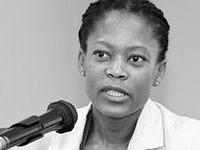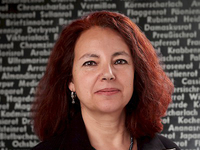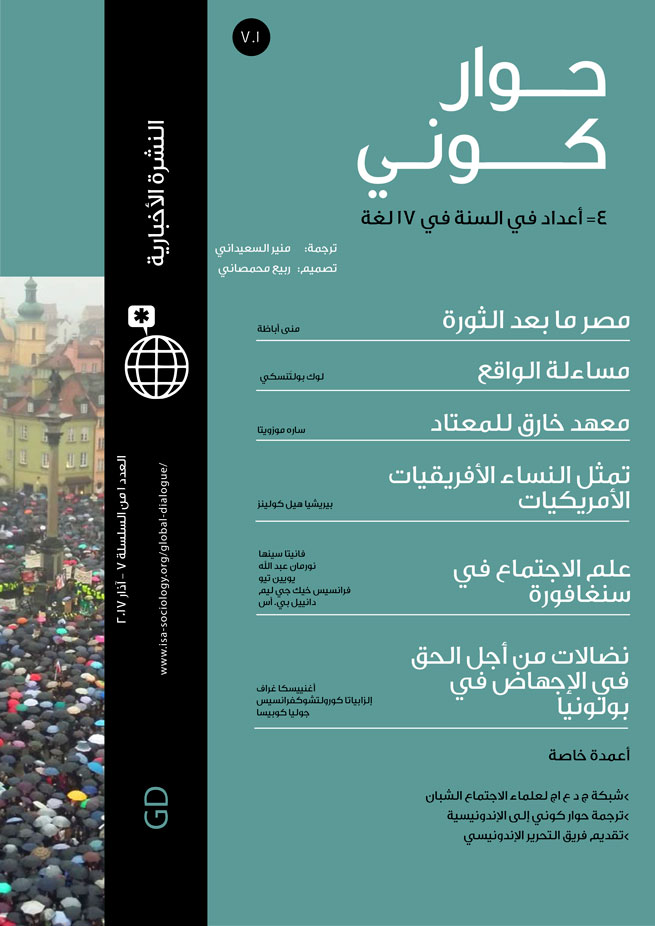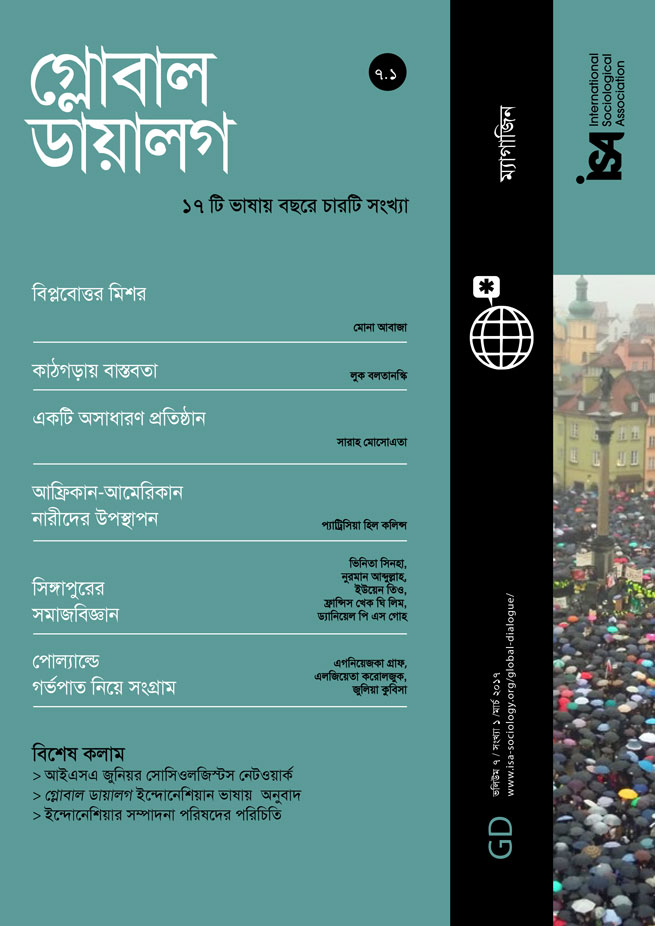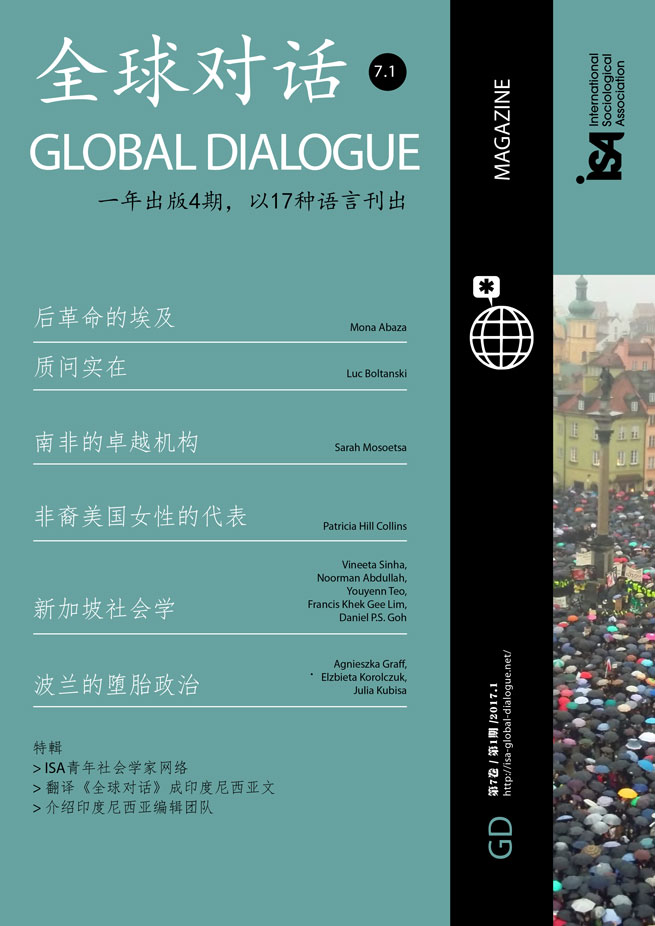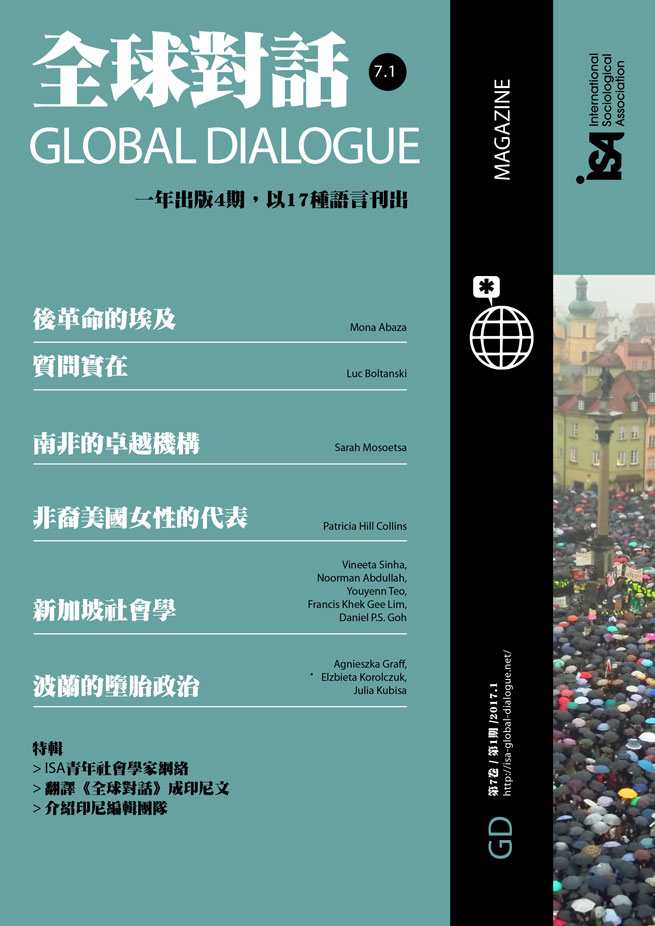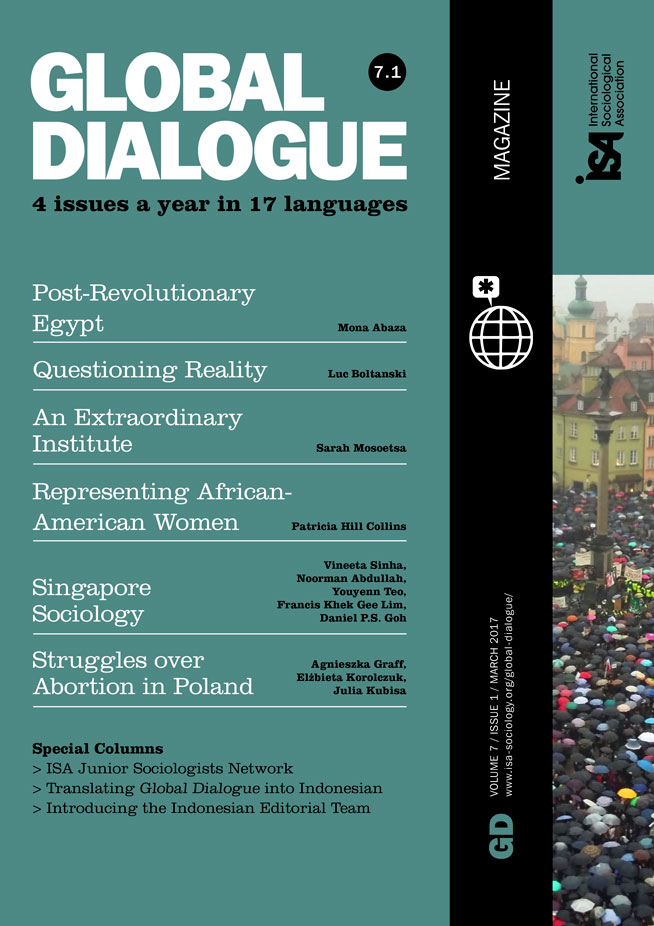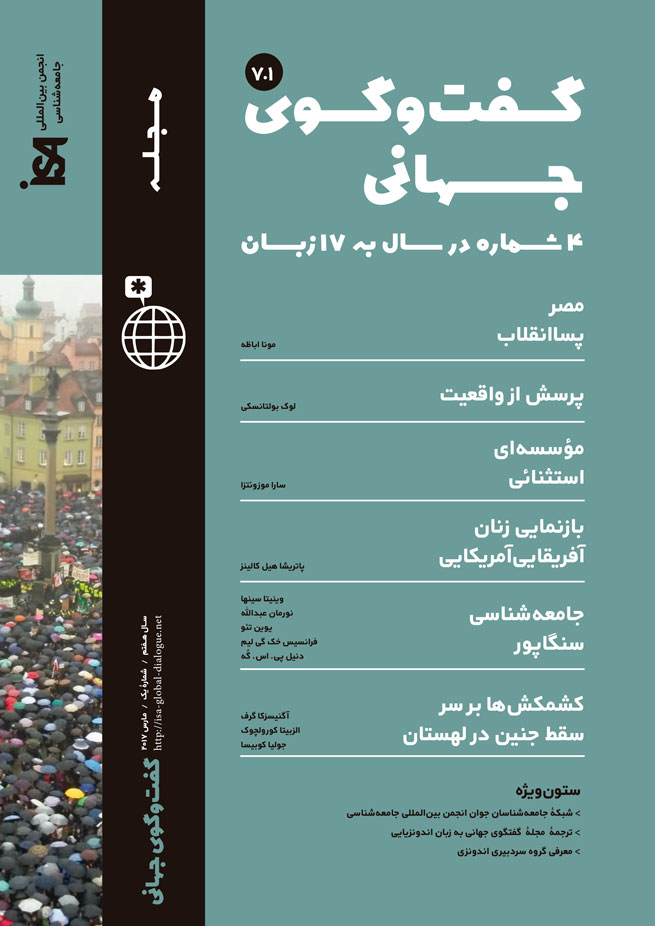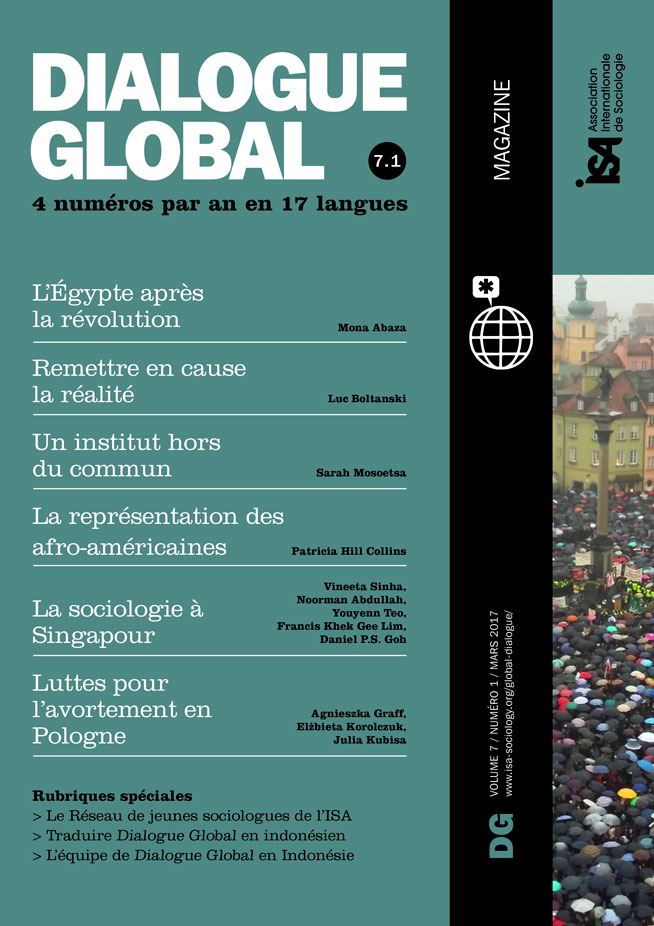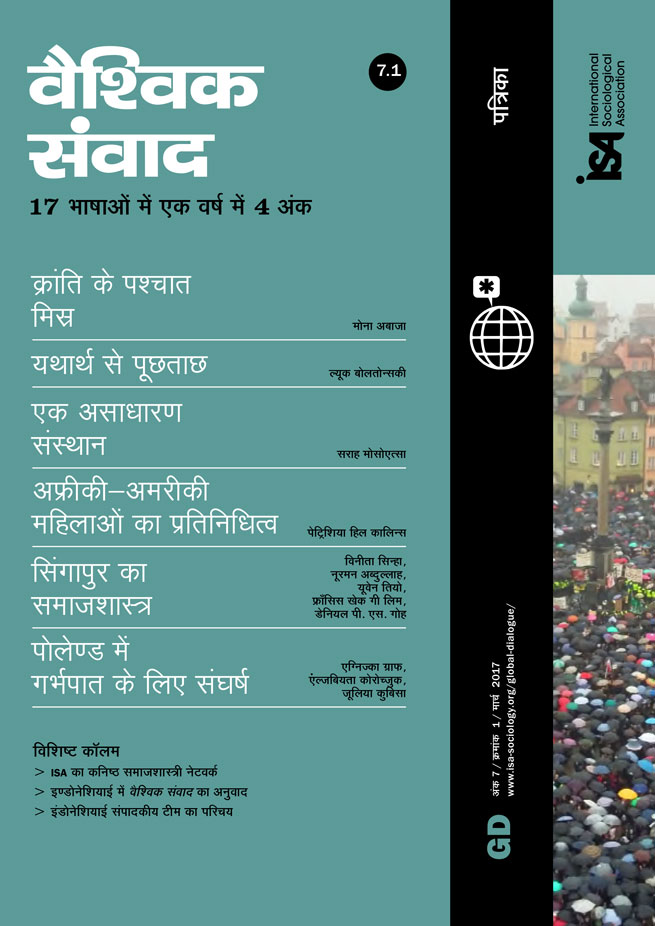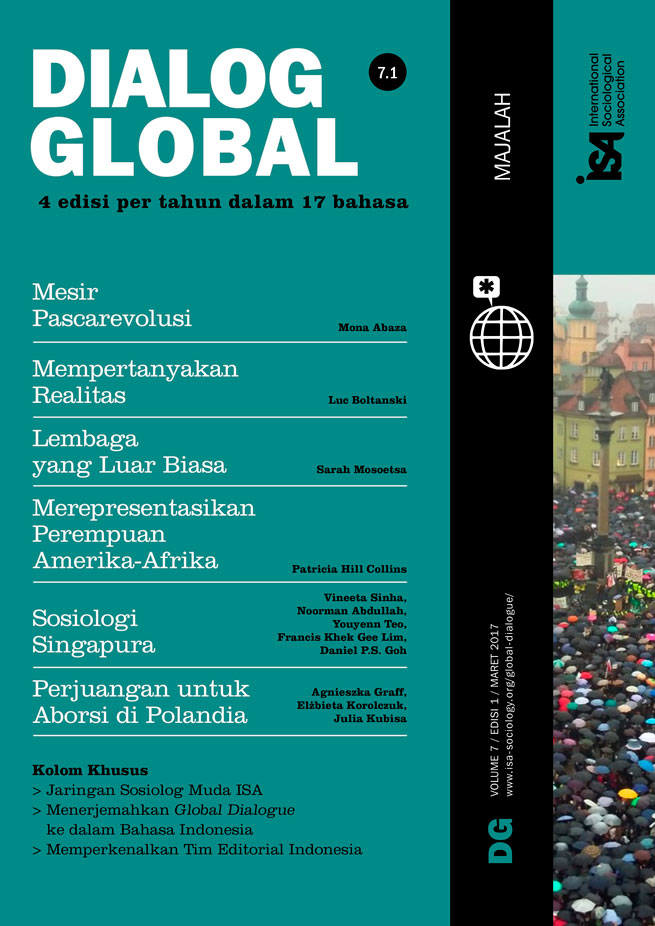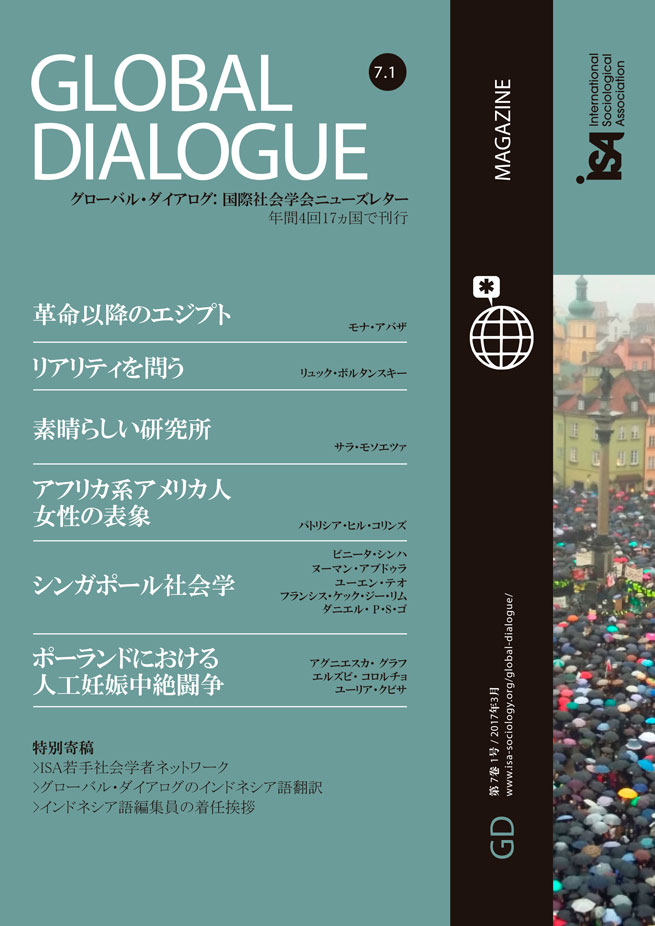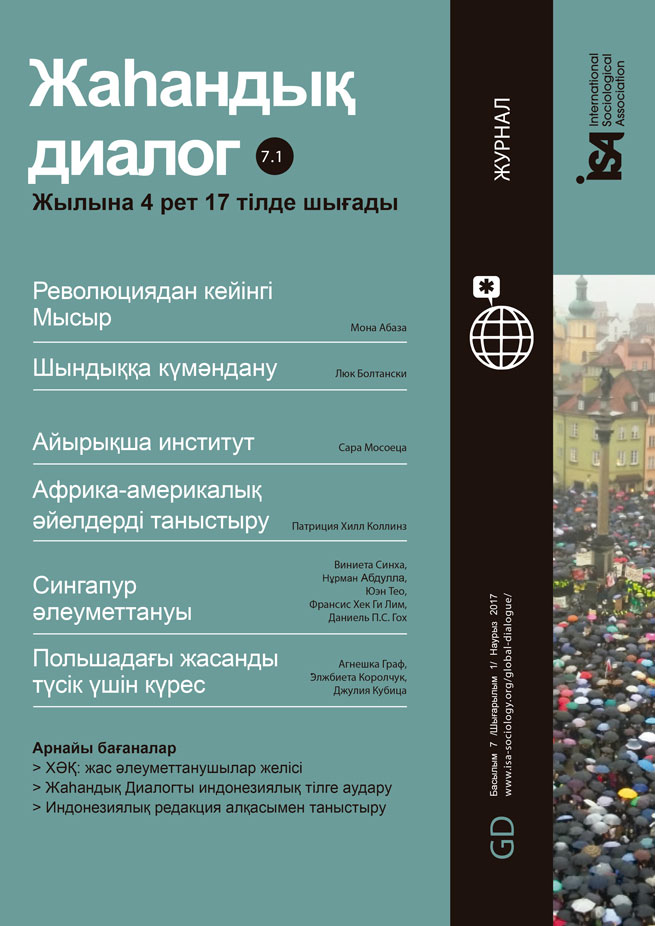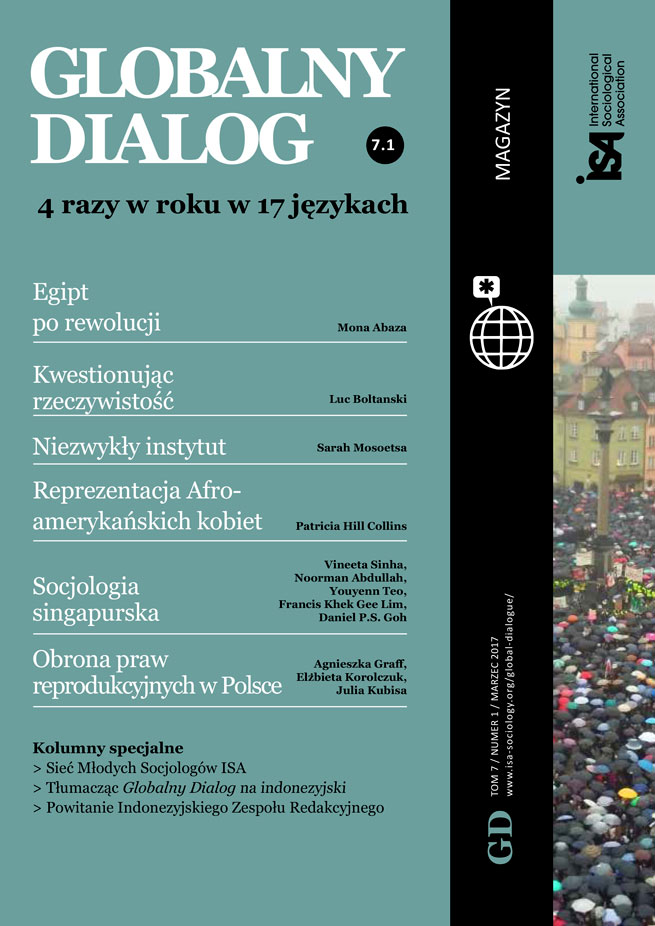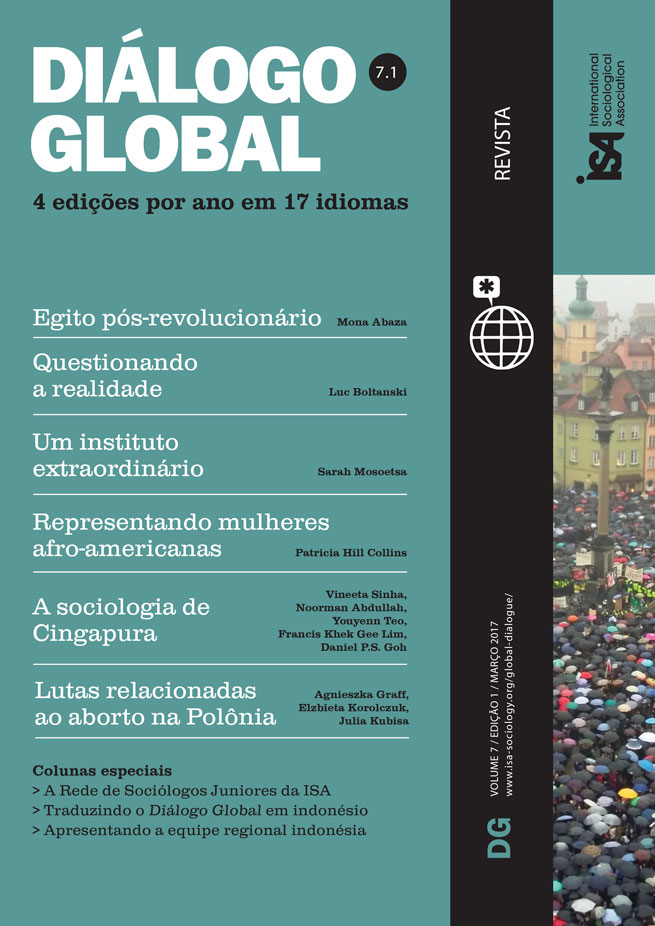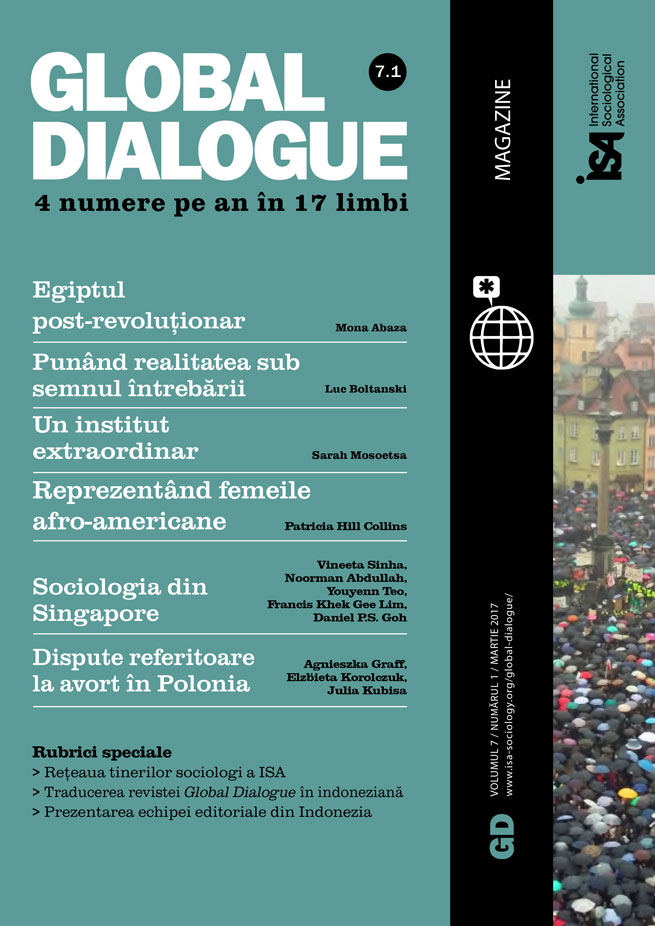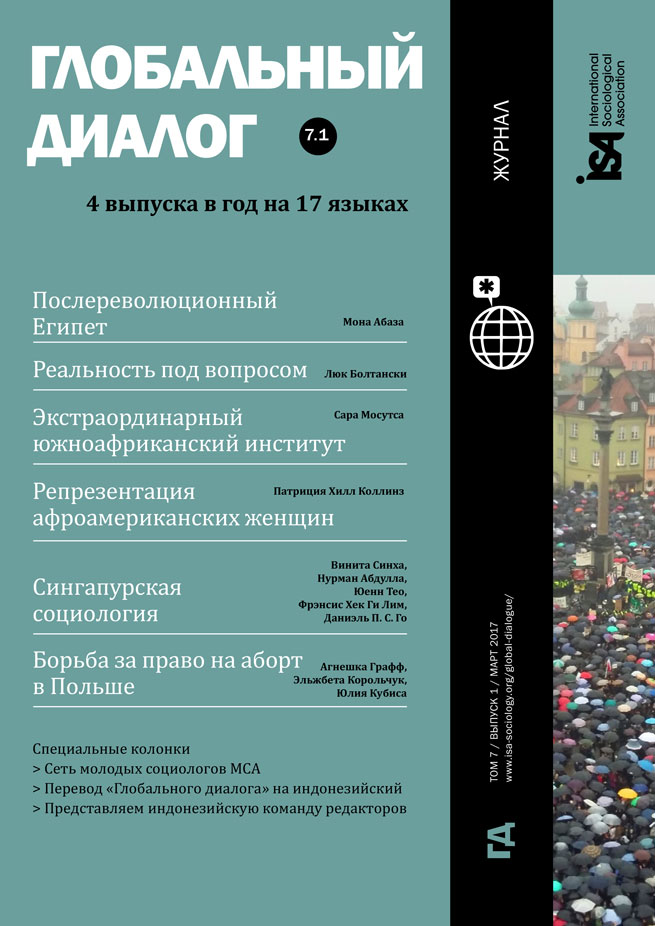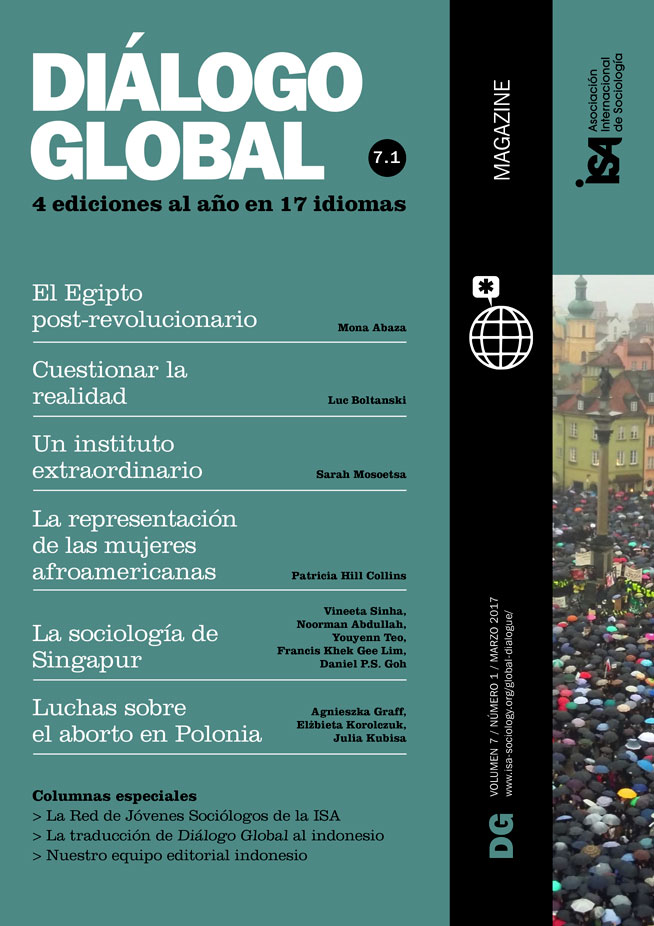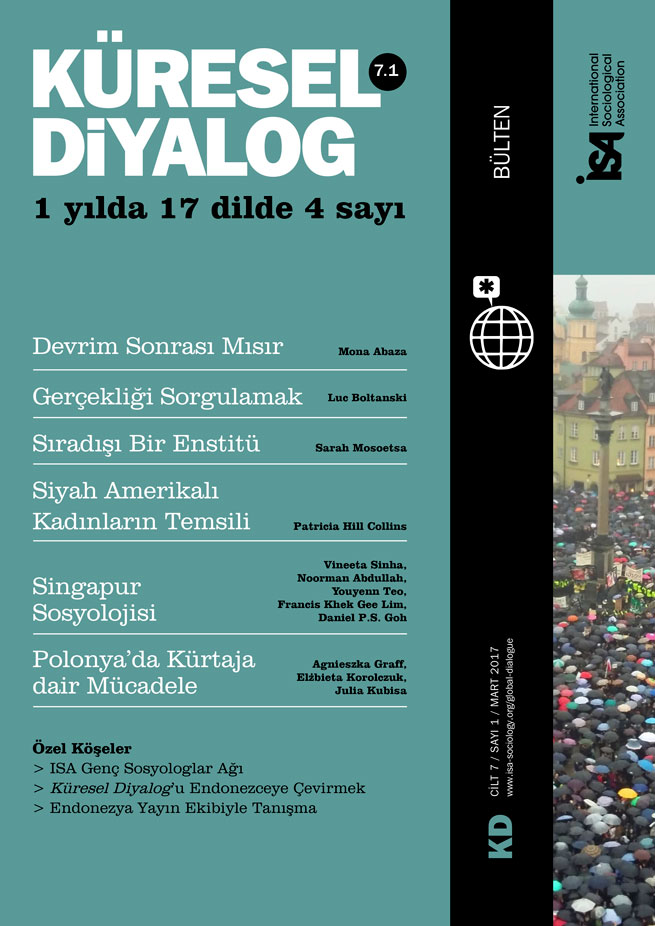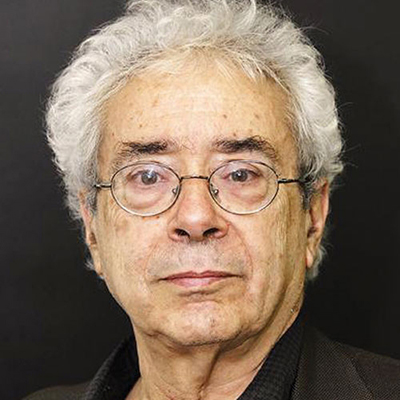Luc Boltanski is one of today’s most distinguished sociologists. A previous collaborator of Pierre Bourdieu, he is a Director of Research at the School for Advanced Studies in the Social Sciences (EHESS) in Paris. In the 1990s, he examined the organization of capitalism and its new forms of domination in the widely acclaimed book written with Eve Chiapello, The New Spirit of Capitalism, published in French in 1999. His research then shifted towards the study of acts of criticism and a sociology of the state. The 2009 publication of De la Critique – released in English in 2011 as On Critique – marked a turning point in his reflection on the relationship between institutions and reality. In 2012, he published Enigmas and Plots, a book about the genesis and diffusion of detective novels since the 19th century. The interviewers, Laura Chartain and Marine Jeanne Boisson, are doctoral candidates at the EHESS Paris, France. Focusing on Luc Boltanski’s process in his book, Enigmas and Plots, they explore the tools and approaches sociologists use to question and criticize institutions. We are especially grateful to Alex Barnard, Nathalie Plouchard-Engel and Emily Murphy for their work on the translation from French into English. The discussion below is an extract from a longer interview that is published in Global Express.
LC & MJB: First off, how did you come up with the idea to work on detective novels?
LB: I’m not at all, or almost not at all, a reader of detective novels! Like everyone else, I tend to read them when I can’t sleep, but basically, I wanted to understand why a literary genre like this which is not always particularly fascinating and which conveys a quite conservative image of society has had such an appeal, right from the start. Indeed, it has become a key genre of narrative work, in the form of books and later movies or television series. That’s truly interesting.
Having myself a career involving investigations and, moreover, on a biographical level, having a son who is a reporter, I wanted to examine different kinds of investigations. When I was writing this book, “affairs” and “political scandals” were breaking out in France under the presidency of Nicolas Sarkozy. These affairs and political scandals entailed investigations and counter-investigations. I asked myself why “the investigations” had taken on such a significant role in the twentieth-century Western world. This question led me to explore the similarities and differences between various kinds of investigations and the various ways of carrying them out.
LC & MJB: Did you intend to examine the genesis of the detective novel?
LB: It is an old Durkheimian approach as well as, in another way, a Foucauldian approach, known as “archaeology.” We understand a phenomenon better when we grasp it from its origins, that is to say, before it turns into something quite different through “field effects,” along lines popularized by Pierre Bourdieu. First, a new genre is created and then various producers innovate and try to distinguish themselves from one another in this field. That’s how they modify the genre. For a little more than a century, there has been a large number of different styles of detective or spy novels. I was attempting to return to the period when this genre originally appeared. I wanted to apply a quasi-structural method to the study of the detective novel and interrogate the historical specificities of the time when this new genre appeared. But I consider this book a sketch, or rather a reservoir of problems, more than a set of answers!
LC & MJB: In Enigmas and Plots, you develop the idea that every investigation can be led by social actors themselves when they notice a gap between “reality” as it is shaped by institutions and the “world” which they experience daily. This gap can then fuel disagreements, doubts, and questioning among the actors. In this book, you point out that “the enigma consists in something that manifests itself in the operation of the social order that may be able to shatter reality.”
LB: Indeed, the enigma is peculiar to the detective novel as invented by Edgar Allen Poe. Gestalt psychologists also tackled this idea of enigma, which stems from something disrupting what is considered stable and seemingly self-evident. The conceptual basis of the book relies on a distinction that I developed in my previous work, On Critique, between reality and the world. This distinction plays a very important part in my work. In short, reality refers to a stabilized order shaped by institutions whereas the world refers to all that can unpredictably appear within the experience of social actors and that can call reality into question.
This distinction aims to respond to certain questions raised by the paradigm of the social construction of reality. This problem is formulated in the famous book by Ian Hacking, The Social Construction of What? If everything is constructed, how, from what point of view, can we grasp these constructions? Doesn’t deconstruction, which results from determining that a fact is “socially constructed,” always entail a new construction? Doesn’t this approach lead to a general relativism that after all would also make sociologists’ work completely arbitrary? Therefore, I wanted to take really seriously this idea of a social construction of reality, tracing it to the way social institutions shape reality. By distinguishing the world from reality, we can find a reference point which allows us to distinguish the constructions of reality from experiences anchored in the world. Therefore, we must put aside theories of “common sense” – those inherited from the Scottish Enlightenment, from Moore, and in a certain way from Schütz.
It is necessary to begin with a postulate of uncertainty surrounding action. But, of course, our experiences are also in part anchored in reality! To give a very simple example, when you wait for the bus, you expect it to come every 15 minutes; this is an experience anchored in formats of reality. There is a bus stop, there is the bus company and then there is the municipality that built the bus stop and set the timetables. However, the bus may not arrive for a variety of unpredictable reasons coming from the world. Therefore, most of our experiences are also anchored in the world and are characterized by uncertainty. These experiences are much harder to make explicit.
The frames of action shaped by institutions are easy to describe and to totalize because they are already objectified in works of writing and accounting accomplished in part, but not only, by the work of the state that selects elements to be extracted from the world. The world cannot be totalized because it is uncertain, variable, and plural. We can thus describe how social actors are faced with formats of reality shaped by institutions, how they criticize them, how they argue about them, and work to elaborate new formats. Critique, to a large extent, helps to explain this genre of experiences.
Therefore, I wanted to consider how the construction of reality was linked to institutions that set up social devices which aim to reduce such uncertainty. In Enigmas and Plots, I view the specific project of European nation-states, especially their democratic forms in the second half of the nineteenth century, as attempts to truly structure reality or render action predictable, drawing both on the law – that is to say policing devices – and on the social and natural sciences. The idea largely stems from Foucault’s notion of biopolitics.
Let me give you another example that I like a lot. I have a friend who was a committed leftist and feminist when we were young during the 70s. She was in an ultra-left movement with other women and men from minority groups. One day, the girls looked at each other and realized that it was they, the women, who stuffed the envelopes with leaflets, that it was they who made the coffee, etc. So what did they do? They expelled the guys, locked themselves in the office and talked together for twenty-four hours straight. And that was a key moment in the birth of feminism in France! Before, most of them had had experience in analysis, psychoanalysis, so it did not start from nothing. I think these movements develop through learning – through sociology, psychoanalysis, union action, it could be any type of learning – in order to capture experiences and try to share them.
LC & MJB: How do sociologists account for actors’ experiences?
LB: To aim for objectivity, sociologists need to connect the instruments of description with reference points that allow us to take a critical view on this reality. This cannot be tied to particular morals, because these critical reference points should instead claim a certain universality, as I explained in On Critique. One way to proceed involves following actors when they criticize. These actors are realists. They take into account the situation in which they are acting so they can turn various contexts to their advantage, saying something different in each one, for instance. So a worker can be very polite to his boss and yet be very critical at home.
I think we should follow the social construction process, the ways people themselves construct the world. Initially, each experience is particular, there are nothing but singularities in the world. People are then going to share those experiences, make them equivalent, give them a language, change them into demands, and attempt to construct proposals and claims, as well as modifications of reality and of the formats reality rests on. It is very interesting to follow as closely as possible the operations of qualification and critique as well as the way the various elements of reality are constructed and deconstructed. You follow them by reading novels, you follow them by conducting interviews, and you follow them by observing disagreements. Sociological work must follow constructions and deconstructions, and attempts to establish new formats of reality.
LC & MJB: Do you think sociologists should go further and depart from the action plan of actors and institutions to try to analyze the framework they rest on?
LB: I now think that it is impossible to do a sociology that is entirely pragmatic, entirely based on the analysis of situations. Incidentally, the actors themselves don’t do that! They know their living environment depends on decisions over which they have very limited control, as individuals, and particularly, on institutions that say what is what, shaping the situation as it is. But they can use to their advantage the contradictions that always threaten the way institutions construct reality. Coming back to my earlier example of the bus, they can, for instance, show that, although the bus is supposed to be on time, this almost never happens in practice.
To criticize the creation of formats of reality, sociologists don’t rely on a particular moral claim but on the work of social actors who question them and who attempt to establish fairer formats. But sociologists may try to go further than following the actors in their attempts to establish new formats of reality. They should use totalization tools that objectify what the stabilization of the actors’ experiences relies on. They should undertake an almost impossible operation, consisting in connecting the description of this type of work with a normative judgment. In my book On Critique, I describe how such operations have been carried out in various ways throughout the history of sociology. My thesis is not quite a “hypothesis” insofar as it is very difficult to demonstrate it empirically. I consider that the project of stabilization of reality is very unlikely to succeed within the framework of the nation-state for it is constantly disrupted by flows associated with the development of capitalism. These flows threaten the efforts aiming to homogenize reality within a territory and a population. Many studies, in particular by Gérard Noiriel – who works on the reinforcement of borders, on identity papers, and on linguistic unification – analyze the state’s efforts to homogenize territories and populations. In France, an outstanding study by Jacques Revel, Dominique Julia, and Michel de Certeau focused on this topic 30 years ago. This study refers partly to Deleuze’s opposition between territories and flows, since the project of the nation-state is constantly destabilized by flows that are due to the functioning of capitalism. In the social contexts where detective or spy novels were born, it is above all the nation-state that is able to, and aims to, construct reality.
LC & MJB: Does this require sociologists to go beyond the context of the nation-state to invent new modalities of totalization, capable of grasping the creation and the destabilization of this framework?
LB: Yes, indeed. Why am I interested in the history of detective novels in relation to the formation of the nation-state? Why was I able to do this? I think that I was able to do this because this framework is now very much in crisis. At the same time, we can observe this framework from the outside, even if it is difficult to describe this exteriority. With a thought experiment, we can at least go beyond the national and state framework. I think a central problem for sociologists today is that the architecture of sociology, particularly in France, but not only in France, depends largely on the nation-state established at the end of the nineteenth century. That is why we have an English sociology, a German sociology, a French sociology… Given that we experience nowadays a significant decline and transformation of this framework, many tools of sociology don’t work anymore and must be reconstructed in order to grasp the ways in which new frameworks of reality’s stabilization and critiques appear regardless of national borders. To those of you who enter this sociological craft, that is what you are going to have to do!
Luc Boltanski <boltansk@ehess.fr>
Laura Chartain <laurachartain@gmail.com>
Marine Jeanne Boisson <boisson.marine@hotmail.fr>

